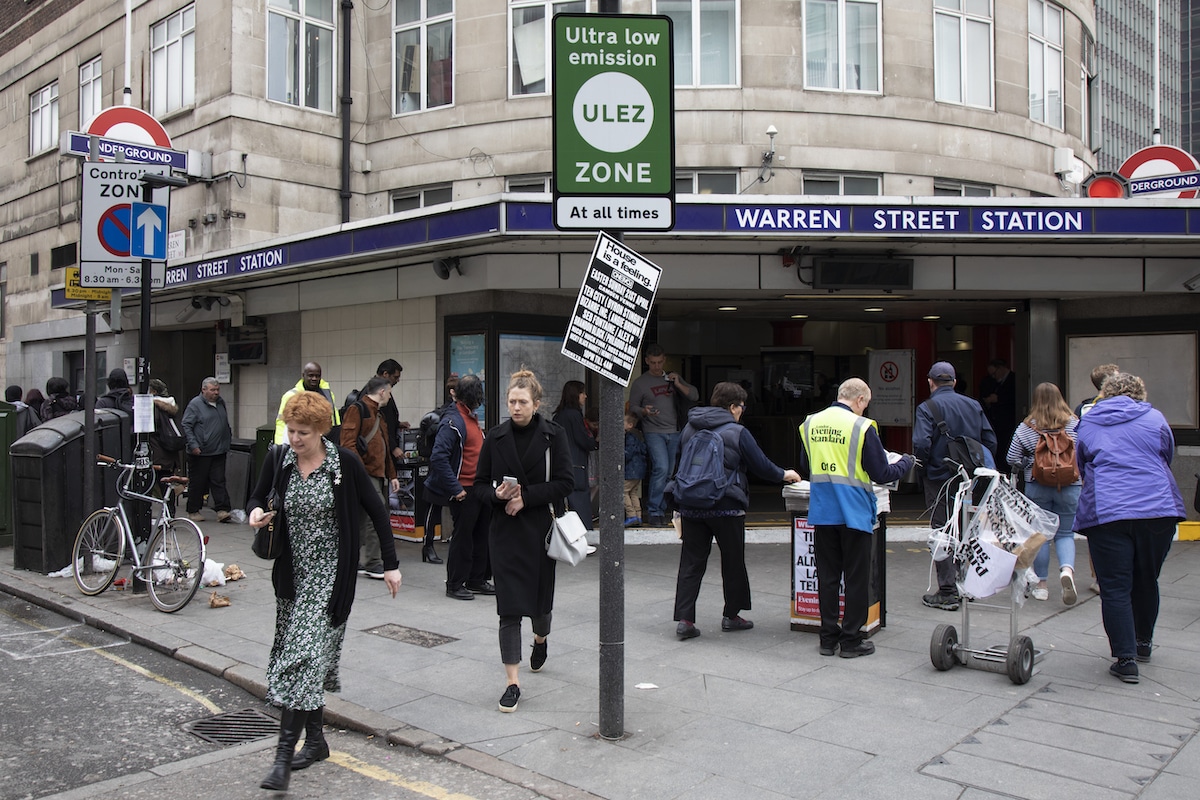Low Emission Zones in Cities Lead to Improved Health Outcomes, Study Finds

 Why you can trust us
Why you can trust us
Founded in 2005 as an Ohio-based environmental newspaper, EcoWatch is a digital platform dedicated to publishing quality, science-based content on environmental issues, causes, and solutions.
A new review links low emission zones (LEZs) and congestion charging zones (CCZs) in cities to improved health outcomes, particularly for cardiovascular disease outcomes.
The review started by examining more than 2,000 LEZ- and CCZ-related studies, and the researchers ultimately decided to analyze 16 studies on LEZs and CCZs in cities across Europe and Asia to determine the impacts of these zones on air pollution-related health outcomes. The review was published in The Lancet Public Health.
Half of the studies focused on LEZs: four in Germany, two in Tokyo, Japan, one in Milan, Italy, and one in London, UK. The remaining studies focused on CCZs.
“We wanted to bring together the most up-to-date studies from LEZs globally, to understand their effectiveness and to inform future plans to address air pollution,” said Rosemary Chamberlain, first author of the study and a Ph.D. candidate at the MRC Centre for Environment and Health and School of Public Health at Imperial College of London, as reported by The Guardian.
The results showed declines in subcategories of cardiovascular disease, such as high blood pressure or cardiovascular deaths, in multiple cities with LEZs, and some cities with CCZs showed reduced instances of road traffic injuries. The researchers also evaluated other health outcomes, such as birth outcomes, respiratory outcomes and diabetes, but the evidence found no clear effects. This was partly because of fewer available studies on LEZs and CCZs linked to these outcomes.
LEZs are designed to prevent the most polluting vehicles from coming into designated areas, such as a busy city center, Low Emission Zones Scotland explained. CCZs limit the number of cars that can come into an area, which reduces traffic. Both interventions can lead to reduced air pollution, which can lead to improvements in public health outcomes.
“We know air and noise pollution associated with road traffic can have harmful impacts on cardiovascular health, such as through increased blood pressure, impacting sleep, and directly through small particles being inhaled into the lungs,” Dr. Anthony Laverty, a senior lecturer within the School of Public Health at Imperial College London, said in a statement.
But measuring the impact of LEZs and CCZs can be difficult, Dr. Laverty explained. The new review shows promising positive outcomes for health when these traffic interventions are established.
“Our review brings together the global evidence to help understand how effective LEZs and CCZs are in bringing about benefits to public health,” Chamberlain said. “We found evidence of health benefits within a relatively short time of implementation, particularly in relation to cardiovascular disease and road traffic injuries.”
Subscribe to get exclusive updates in our daily newsletter!
By signing up, you agree to the Terms of Use and Privacy Policy & to receive electronic communications from EcoWatch Media Group, which may include marketing promotions, advertisements and sponsored content.

 233k
233k  41k
41k  Subscribe
Subscribe 



